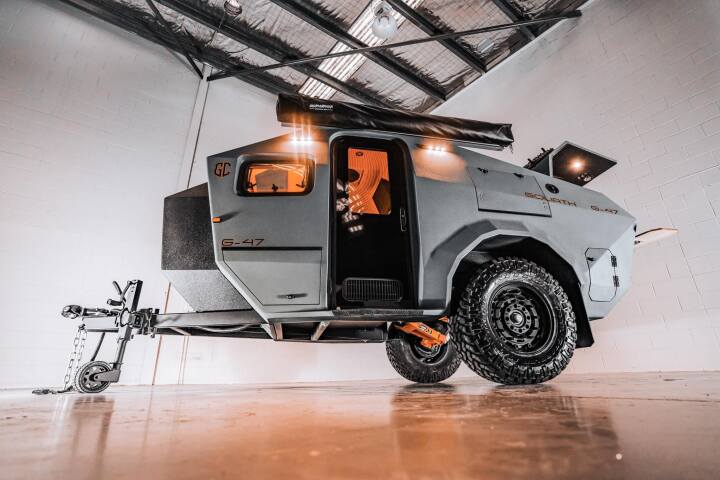Even the most avid tent camper doesn't enjoy the experience of tossing and turning through a hot, stuffy night or waking up in a pool of sweat as the rising sun beats through the ripstop. That may or may not happen often, depending where and when you camp, but it might not have to happen at all in the future. A researcher at the University of Connecticut is working on a liquid tent-cooling system that delivers A/C levels of temperature drop without the need for electricity, special coolants or anything more complex than a gallon of water.
Working as a researcher at UConn's Center For Clean Energy Engineering, Al Kasani is pursuing the new means of tent cooling, which would essentially turn the basic tent into an evaporative cooler. The research relies upon a special tent fabric made with titanium dioxide, which wicks water from reservoirs attached around the tent base and disperses it across the fabric's surface area. The water evaporates in the heat, creating a cooling effect that can reportedly drop the interior temperature by up to 20 °F (11 °C) as compared to the outside temperature.
We've seen a variety of solutions to tent cooling over the years, but most are less than ideal for one reason or another. Portable fans are probably the simplest, lightest and least expensive way to quickly cool a tent down but don't offer the dramatic temperature-dropping effect of air conditioning. Portable air conditioners have grown more popular and mobile of late, but such units require external power for running or recharging and can end up being too large and bulky for lighter styles of camping. Reflective fabric prevents a tent's interior from heating up in the sun, but it doesn't cool the tent below ambient temperature.
Kasani's concept delivers a cooling effect without the need for electricity or bulky equipment. The only critical outside element to get it working is water, something that's usually readily available at organized campgrounds and can be obtained via natural sources when camping more primitively in the backcountry. A gallon (3.8 L) of water is good for a full 24 hours of cooling.
The tent design is still in the research stages, but Kasani is working with UConn's Technology Commercialization Services office toward the possibility of launching a marketable product. According to a report in the university's news publication UConn Today, the design has received strong industry interest.
We're interested to see a finalized prototype and how neatly the system integrates into a functional tent. In particular, we wonder what the water reservoirs will look like. Something relatively light and packable, like the style of soft bladder found in a hydration pack or a design similar to a packable fabric dog bowl, seems like it would be the best way to keep the tent comparable to a similarly sized retail tent in terms of weight and portability. A heavier, less packable reservoir could limit the system's market appeal.
In addition to recreational camping, Kasani sees the design finding use in tent products built for professional applications like military, forestry and emergency rescue.
Source: University of Connecticut




